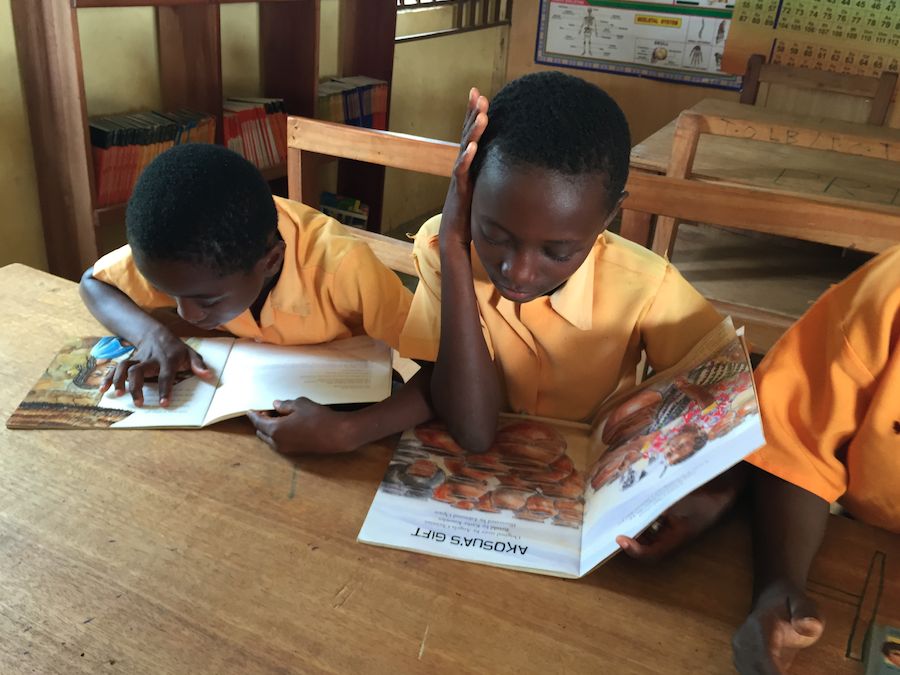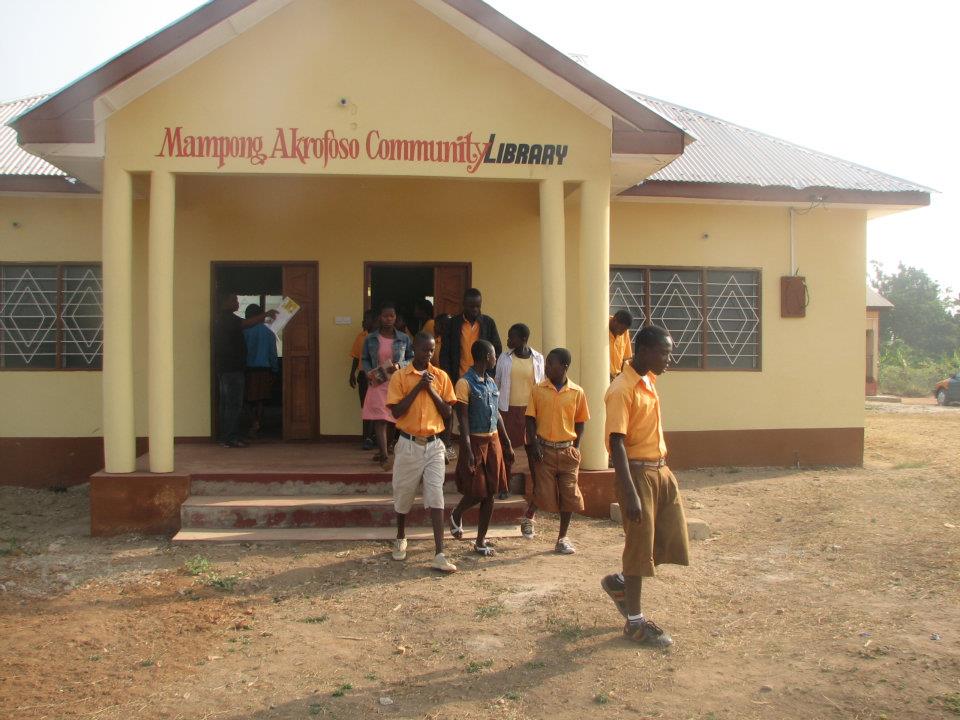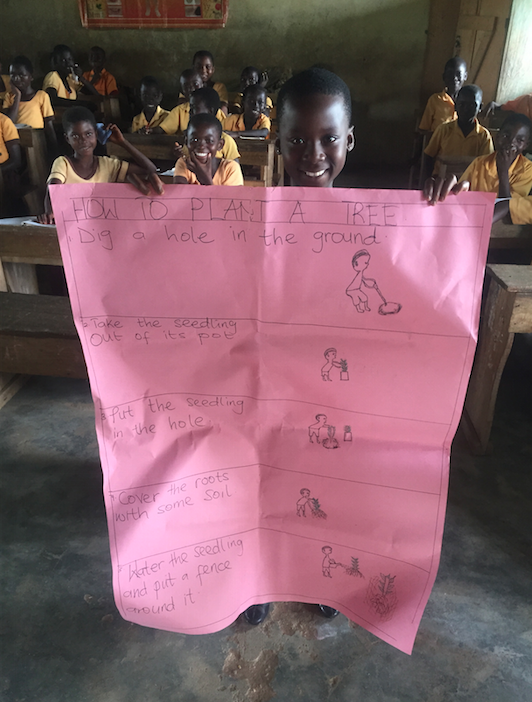 In 2010, a report by the Ghana education Service indicated that 64% of pupils in public schools couldn’t read and write effectively. Often, teachers attribute students’ lack of literary skills to “stupidity” or “lack of motivation,” discouraging many students from learning how to read. To make matters worse, the home environment of Ghana’s poorest students is not conducive to learning. Among the poorest 20% of students, less than 1% of children have access to reading material in their homes (UNICEF), and over 40% of rural heads of households have never even attended school (National Analytical Report). Growing up in a community where educational pursuits are met with little encouragement by adults and rejected by teachers who mistake miscomprehension for stupidity, students in rural areas are often deterred from attaining high levels of education.
In 2010, a report by the Ghana education Service indicated that 64% of pupils in public schools couldn’t read and write effectively. Often, teachers attribute students’ lack of literary skills to “stupidity” or “lack of motivation,” discouraging many students from learning how to read. To make matters worse, the home environment of Ghana’s poorest students is not conducive to learning. Among the poorest 20% of students, less than 1% of children have access to reading material in their homes (UNICEF), and over 40% of rural heads of households have never even attended school (National Analytical Report). Growing up in a community where educational pursuits are met with little encouragement by adults and rejected by teachers who mistake miscomprehension for stupidity, students in rural areas are often deterred from attaining high levels of education.
 In 2007, the Yonso Project set out to change the negative attitude towards reading and education in rural communities. We began by building libraries in rural communities to provide students with much needed reading materials (see some of the libraries we have built in Rural Libraries). Seeking investment by parents in their students education and finding that libraries would only be effective if the communities actively participated in the establishment and maintenance of the facilities, we began a new process of establishing libraries. Today, we hold meetings with community members before building a library in order to ensure community buy-in to our projects and, after the library has been established, we create a board of parents, teachers, and other interested residents who maintain the library and its resources. From our experience, our library boards can operate nearly independently of the Yonso Project, representing a sustainable system for the preservation of the new academic resources in the community.
In 2007, the Yonso Project set out to change the negative attitude towards reading and education in rural communities. We began by building libraries in rural communities to provide students with much needed reading materials (see some of the libraries we have built in Rural Libraries). Seeking investment by parents in their students education and finding that libraries would only be effective if the communities actively participated in the establishment and maintenance of the facilities, we began a new process of establishing libraries. Today, we hold meetings with community members before building a library in order to ensure community buy-in to our projects and, after the library has been established, we create a board of parents, teachers, and other interested residents who maintain the library and its resources. From our experience, our library boards can operate nearly independently of the Yonso Project, representing a sustainable system for the preservation of the new academic resources in the community.

Student of a teacher trained in the Reading Project holding the poster she made, which has been modeled after the Reading Project teaching methods.
Having successfully established libraries in several communities throughout our region of rural Ghana, we sought to find methods of making these libraries even more effective in educating local children. In 2014, Yonso Project members envisioned the Reading Project. This latest development in our programs for advancement in rural education consists of training programs for local teachers, students, and parents. The lack of reading materials and educated role models in rural communities, combined with discouraging traditional teaching methods, has resulted in a climate that is not conducive of developing an interest in reading. With the Reading Project, we seek to change this academic environment by educating community members in methods of teaching that can make reading a fun and engaging activity. The new outlook on reading provided by our Reading Project training creates demand for libraries in communities before the facilities are even constructed, ensuring that the libraries will be a success even before they are built!